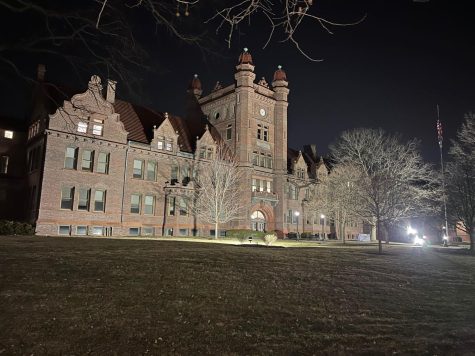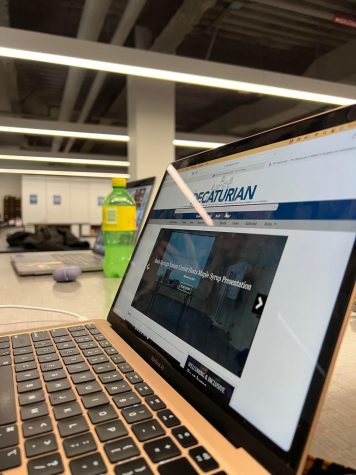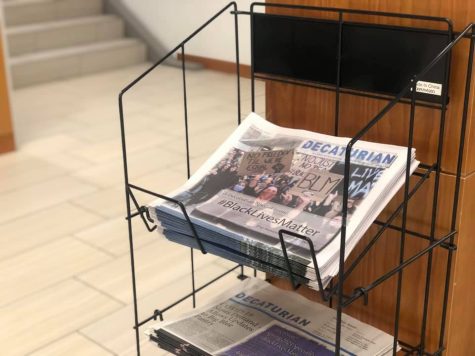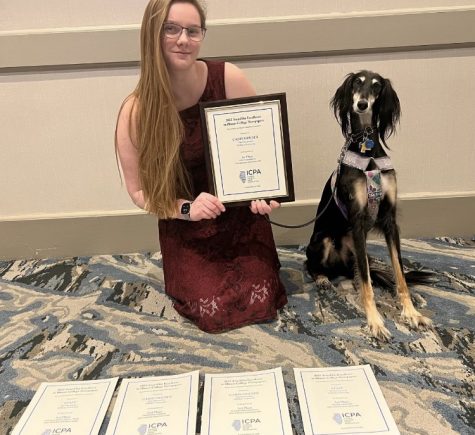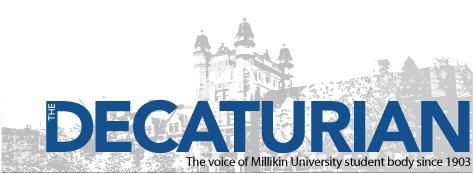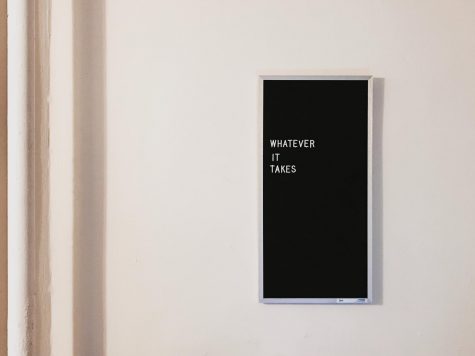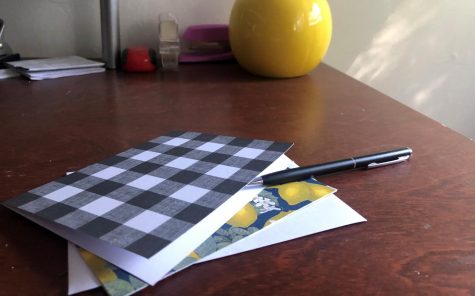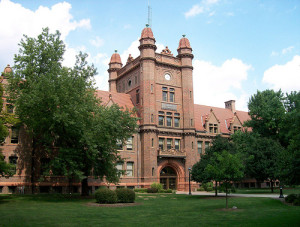Editorial
I recently had the privilege to serve as a panelist at Millikin’s Constitution Day event. The theme was “Freedom of the Press in the Age of Fake News,” and Millikin invited three respected journalists to speak. Well, three respected journalists and yours truly, a student who is just starting as a journalist by writing for the “Decaturian.”
I was honored to be onstage with people who have impressive careers and success in their field. For example, I sat beside Steven R. Hurst, a former international political correspondent and Millikin alumnus whose reporting has won several awards.
Exciting? Yes. Intimidating? Also, yes.
But as we began taking questions, I realized that student journalists at the “Decaturian” have experienced many of the same issues that these professional reporters addressed.
A lot of the conversation focused on First Amendment rights and what that means to us as journalists. The reporters all shared a similar answer: It means that we are protected in our pursuit and distribution of information.
At the “Decaturian,” we strive to write articles that are factual, timely, and important. We know that we have a right to pursue stories that people don’t always want to tell. In fact, we have a responsibility to our readers to write these stories.
It is our job as student journalists to report on events and issues that affect our community. It is our job to make that information available to our fellow students. We try to write the stories that matter at Millikin.
This is why the First Amendment is important. People have a right to information, and journalists have a right to report on this information.
The panel then delved into the topic of politics. The moderator asked what we as journalists do differently in this era of fake news.
The reporters talked about how perceptions of journalists have changed. People are more suspicious than ever before and doubt the good intentions of reporters. The journalists discussed the increased fact-checking and precautions that they take. I nodded along and realized that I did all of these things, too.
But when I got the microphone, I struggled to give an answer. How has my reporting changed since “fake news” became a buzzword in 2016? I wasn’t even reporting in 2016. I realized that I have never been a journalist when “fake news” was not a major issue.
My reporting hasn’t changed as a result of the current political climate because I’m just now learning how to report, and I happen to be learning in this political climate. I am becoming a journalist in a world that is increasingly mistrustful of journalists.
Not only that, but I am learning how to do this in an atmosphere of intense, sometimes hostile scrutiny. One of the reporters said that she used to have a sticker on her car denoting her as a member of the press. She told us that she had taken it off because she feared for her safety.
Another reporter agreed and explained that they had recently had active-shooter training in their newsroom. This training was in response to a 2018 shooting at the office of “The Capital,” a newspaper in Maryland. The shooter was angry about an article that the paper had printed seven years earlier. He killed five reporters in retaliation.
This weighed on us as we concluded the panel. There is a very real danger in reporting, even in the United States.
I’m lucky. Even though the world might not be a safe place for journalists, Millikin, for the most part, is. For example, I recently wrote a column about Chick-fil-A. This column called for people to protest Chick-fil-A because of their CEO’s anti-LGBTQ+ politics. I wrote it, sent it in, and waited for a reaction.
And…nothing happened. No one harassed me. I didn’t receive any angry emails. Actually, I got a few compliments.
I’m learning how to be a journalist in a world that is not always good to journalists. But I’m fortunate to be learning at Millikin.
I left the event with the understanding that by writing for a newspaper, I am becoming a part of something that’s a lot bigger than myself. I am becoming a journalist in an environment that discredits the validity of my work and the trustworthiness of my character. I am becoming a journalist in a world that is unsafe for journalists.
And yet, we’re reporting anyway. Writers at the “Decaturian” are here because we care about this community. We want to inform its members and we want to tell their stories.
And no matter how scary it gets, we’re going to continue to do just that. Journalism is important. The work of journalists matters.
Our work matters.

